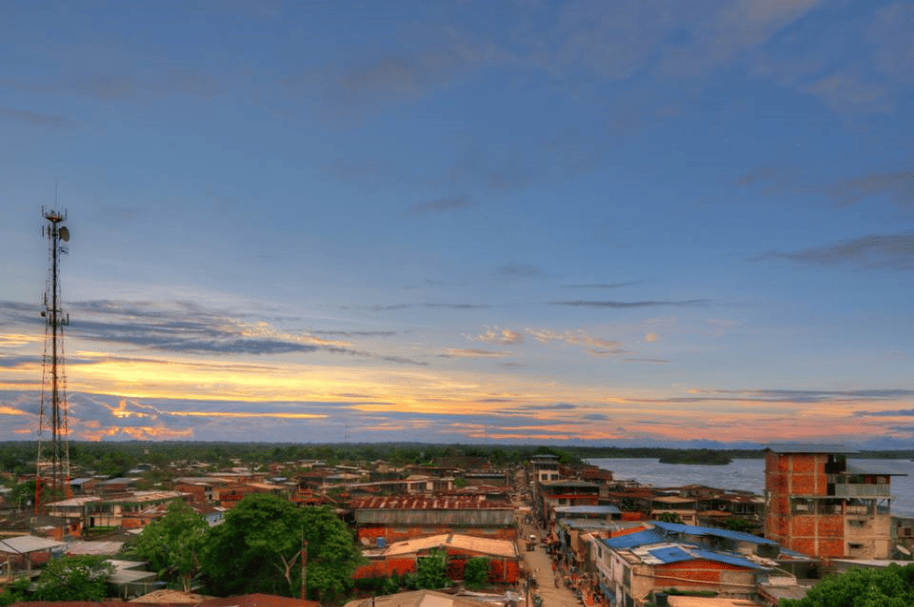SÃO PAULO, Brazil – An explosion on Nov. 2 in the city of Guapi, in the Pacific coast of Colombia, killed three people, injured another two and impacted a number of buildings, principally two Catholic ones. The authorities haven’t confirmed yet who the perpetrators were, but there is evidence that they were members of a guerrilla organization.
The incident occurred in the early hours of last Saturday, when gunshots were heard in the central area of Guapi, a city with around 30,000 residents in the Cauca department.
Father Arnulfo Moreno Quiñonez, the apostolic pro-vicar of Guapi, was sleeping when he heard a series of shots and woke up startled.
“I was born and raised here and it has always been a calm and peaceful city. That was a disturbing occurrence,” he told Crux.
Shortly later, a terrifying explosion was heard. Moreno said that “everything suddenly shook and his window glass fell apart.”
The priest was in the local parish’s rectory, where he lives. On the other side of the street, there’s a two-story building where the Curia is located, and another one that functions as the Episcopal house. Those were the two most impacted structures in the city, he said.
“The Curia is almost completely destroyed. One has the feeling that the part that didn’t fall must be put down, and a completely new building must be built from scratch,” Moreno said.
Many of its internal walls were destroyed, as well as the ceiling between the two levels and the roof. The major pillar that sustains the upper floor is “cracked,” he said, and probably will need to be replaced.
The town hall building was also affected, as well as one hundred other constructions.
The two injured people are policemen who were hit by shrapnel.
“The police station is near that area, so it’s probable that the perpetrators were trying to get there when the bomb exploded,” Moreno explained.
The attack brought terror once again to Colombians, who have been feeling continuous fear due to the violence caused by left-wing guerrilla organizations who have operated in the country since the 1940s, right-wing paramilitary groups, and large drug cartels.
Over the past decade, the Colombian state made a systematic effort to attain peace with some of those organizations, and the Church played a central role in intermediating the negotiations.
The Revolutionary Armed Forces of Colombia (FARC) accepted to put their guns down and became a regular political party. But a number of dissident groups keep operating in distinct parts of the South American nation.
Over the past couple of years, the government has been engaging in peace talks with the National Liberation Army (known as ELN), another major guerrilla group. But the negotiation has been frozen over the past months due to the dissatisfaction of the organization with what it sees as unfulfilled commitments by the government. The Church has been constantly stimulating both parties to go back to the negotiation table.
According to Monsignor Hector Henao, who has been representing the Church in such peace talks over the past three decades, the Nov. 2 explosion “doesn’t seem to be an action of the ELN.”
“That’s not what the evidence suggests. The perpetrators are still unknown, but that zone has been harboring FARC dissidents, who may be potentially responsible for the attack,” he told Crux.
According to preliminary police reports disclosed by the local press, the attackers may have been members of the Front 30 Rafael Aguilera, a dissence of the FARC.
They were apparently carrying the explosives to the police building when an involuntary detonation occurred. Some of their remains were found two blocks away.
Moreno said that things could have been even worse. Normally, a priest would be sleeping at the Curia building, but fortunately he was on a mission out of the city that day.
“It was purely God’s grace,” he said.
The bishops’ conference released a statement repudiating “the criminal actions from those who try to generate panic and desolation.”
The episcopate also called the armed groups to seek “sincere dialogue,” and asked the government to improve its presence in the region of Guapi.
“Our zone doesn’t have roads to connect us to other parts of the country. All communications are done by the sea and rivers. It’s been isolated and impoverished,” Moreno said.
At the same time, those groups benefit from such conditions, he added.
“The Church has been a major force in the pursuit of peace. Ironically, it has been the most impacted institution in that attack,” the priest said.
The local Caritas will use its emergency funds in order to provide help to the community. Technicians are analyzing the damages in the Church buildings and only after that the vicariate will decide how to proceed.
“But we know we’ll have high costs,” Moreno said.










